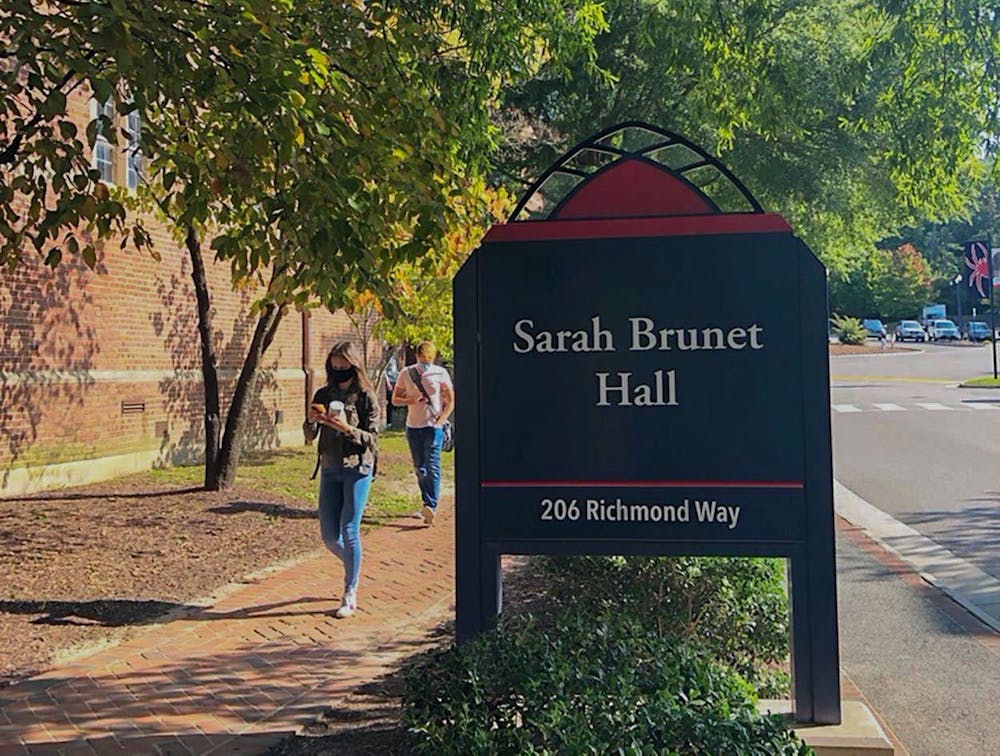A developing program on campus provides resources and a safe space for students struggling with substance abuse and addiction so that students do not have to choose between their recovery and their education.
The program, Spiders Support Recovery, has three main goals, recovery support specialist and University of Richmond alumna Sarah Wood said. The goals are: to provide resources for students in recovery or trying to get into recovery, to de-stigmatize recovery on campus and to educate students who may struggle with a substance abuse disorder or dependency in the future, Wood said
Spiders Support Recovery was started last year, but programming began once Wood was brought in to lead the program in 2020, she said.
Wood began working remotely with the program in June 2020, after being selected by a hiring panel consisting of faculty and two students, she said.
Wood connects students with online and on-campus resources, as well as rehabilitation services on a need-by-need basis, she said. Spiders Support Recovery is not limited to people recovering from substance abuse; it welcomes students seeking support for any kind of behavior change, such as anxiety or an eating disorder, Wood said.
Students who are interested in talking to Wood or working with the program can visit the Spiders Recovery Resource program page on the UR Health Promotion website to fill out a contact form. She is still in the process of adding more contact information and a weekly schedule to the webpage, so more details will be posted in the coming weeks, Wood said. Students can also email Wood directly, she said.
Slade Gormus, a nurse at the Student Health Center, applied for funding from the Virginia Collegiate Recovery Grant for a recovery program in 2019, she wrote in an email to The Collegian.
The Virginia Collegiate Recovery Grant was awarded to Virginia Commonwealth University to help build substance abuse recovery programs at eight universities in Virginia, according to Gov. Northam’s website. The money comes from the federal State Opioid Response funding.
Gormus identified a need for recovery programs as students came to UR with addictions, so she applied for funding and received part of the VCU grant money for a UR recovery program, she wrote.
Wood’s own recovery began when she quit drinking when she was 20 at UR, she said.
“During those early days of my sobriety, I felt alone on the UR campus as I struggled to attend classes and avoid challenging emotional and social situations,” she wrote on her Health Promotion Story page.
Wood has a background in teaching, research and educational psychology, but she is now motivated to bring her experience as a person in recovery to the program, she said.
Enjoy what you're reading?
Signup for our newsletter
“As a peer, I am going to sit beside you,” she said. “I’m not connected to CAPS. I’m not connected to the Police Department or the deans. My only agenda is to be here and provide students with a safe space.”
Gormus has similar goals for the program.
“Being on a college campus for students with addictions can be extremely isolating,” she wrote. “By developing a program and bringing a sense of awareness to our community, my hope is that we can all have an understanding of how we can be allies for those in recovery.”
Junior Maria Perry has been involved with the program since it began and has recently been attending meetings to help Wood develop programming ideas, she said.
“I think this program is important to take away the stigma surrounding substance abuse issues and normalize talking about the significance of alcohol in the social culture at Richmond,” Perry said. “I think a lot of students could benefit from the program, even if it's just being mindful of their substance use habits.”
Wood said the program recently moved into Sarah Brunet Hall, the old Counseling and Psychological Services space. Though the program is not connected to CAPS, some students have been referred to the program through their CAPS counselors, Wood said.
“I want [UR students] to decide what the program is, not me,” Wood said. “In my mind, I want to start off with meetings here where I feel like we can get enough of a following that somebody doesn’t show up and they’re the only one. If I was just barely considering reaching out, I think that would be too intense and maybe a deterrent.”
Spiders Support Recovery is non-judgmental, non-critical and respectful of students’ privacy, according to the program webpage.
“[The program] can be as anonymous as you want it to be, and I think it should be seen as just another mental health resource, like CAPS,” Perry said. “I can totally see how students might be hesitant, but I think it has a lot to offer many people.
Contact features writer Anna Ridilla at anna.ridilla@richmond.edu.
Support independent student media
You can make a tax-deductible donation by clicking the button below, which takes you to our secure PayPal account. The page is set up to receive contributions in whatever amount you designate. We look forward to using the money we raise to further our mission of providing honest and accurate information to students, faculty, staff, alumni and others in the general public.
Donate Now



